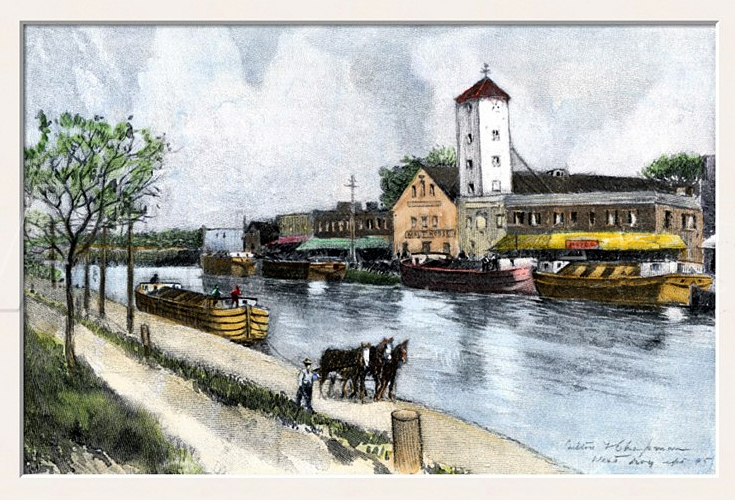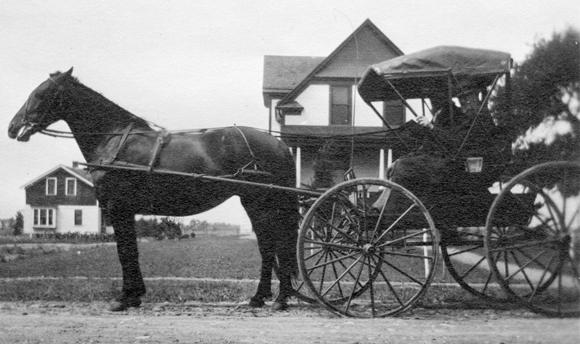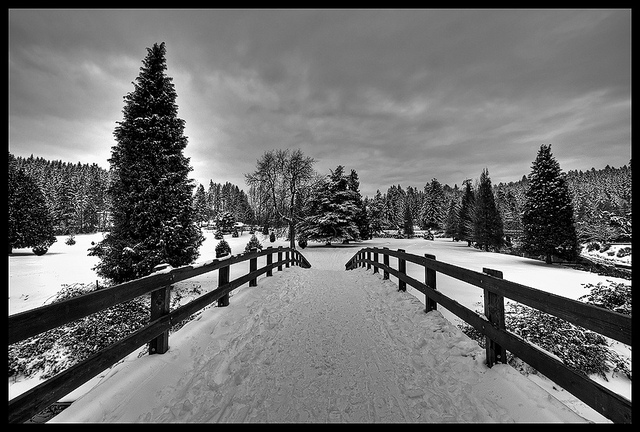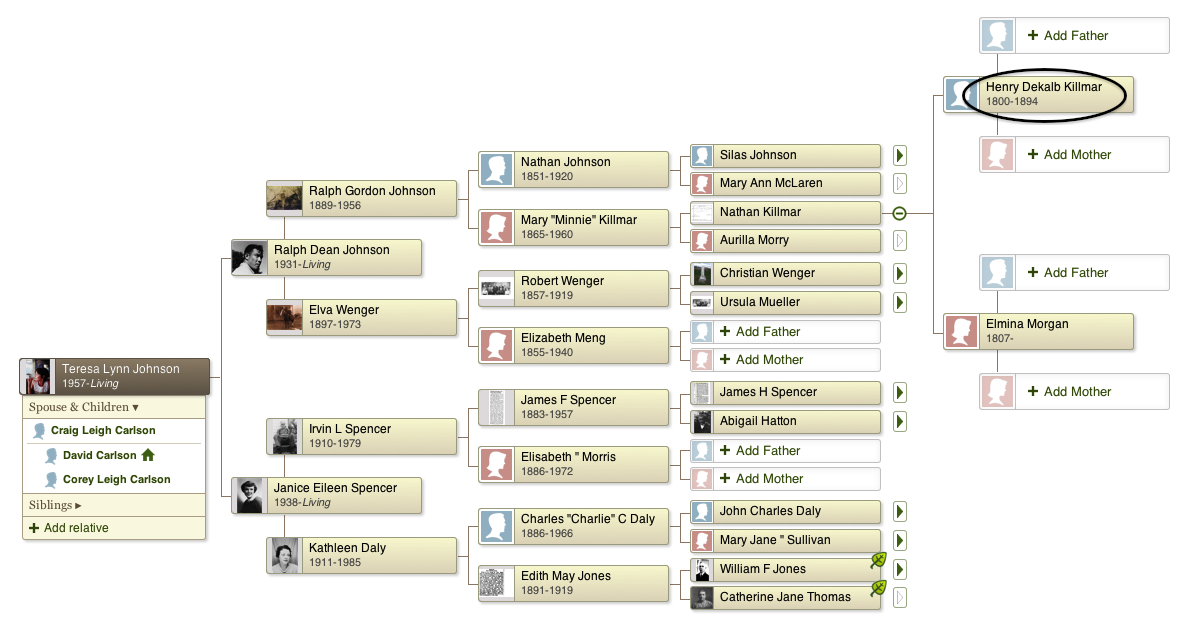Henry Dekalb Killmar (Killmer/Kilmer/Kilmour) was born on July 13, 1800 in Troy, Albany, New York. He was married to Elmina Morgan in 1826 in Jefferson, New York. They had six children: Nathan (b. January 1827), Miles (b. 1833), Caleb (b. 1836), Ann E (b. 1840), Byron (b. 1843), and Lucius (b. 1851).
Henry and Elmina are listed on the 1870 and 1880 United States Federal Censuses living with their daughter Anne in Lapeer, Michigan. Lucius was still living with them in 1870, but he had moved out by 1880.
Presumably after his wife died, Henry made his way out west with his son Nathan. They are listed living at the same residence in Bothell, King, Washington on the Washington State and Territorial Census. Henry died in King County on September 14, 1894, at the age of 94.
His son Lucius Whitebec, in a biography written for his own son, speaks on Henry: “My father, Henry Killmar, was born July 12, 1800 at or near West Troy, New York, of Dutch parentage. His mother’s maiden name was Whitebec. I do not know how large a family there was, as I can only remember hearing of one brother (Urial), and one sister (Ruth). I think his brother, Urial, was younger than father and Ruth, about his age or older as the following story, as told me may show.
Father and his sister, Ruth, were traveling through Central New York with horse and buggy and coming to a town too late for the usual dinner hour, were having their dinner all alone except for the help of a couple of buxom Dutch girls, who seemed to be having some cause for merriment. Father noticed that his sister was enjoying the chatter and when he got out, he asked her what it was all about and she said, “The girls wanted to know how so beautiful a woman as I am could marry as homely a man as you are.”
So much for knowing more than one language, a common and grave mistake made by many people coming to America. Letting the children forget the mother tongue to learn the English.
The child life of my father’s time had its happy days, the same as now, if not as many of them.
There were the Christmas holidays and the parts taken in them were enjoyed by young and old. It was the custom in father’s circle for the parents to choose one of their number to represent Santa Claus to whom all gifts were given for his pack beforehand. Then at the proper time, Santa Claus started on his rounds and when he came into the homes he was dressed about the same as our ‘idea of Santa in a funny fur-lined jacket and bells on cap.’ He was welcomed by the old folks with due decorum and by the youngest in strict silence. After a due time and visit Santa might call on a boy or girl to dance. If the candidate for this honor could not or would not comply with this request Santa did not hesitate to use his whip in regular fashion. He seemed to have foreseen some such an occasion and was prepared. The parents of the household said not a word against it, for he was King for the time. Perhaps some smart boy got a lesson much needed for there was such smart ones in the good old days of our father’s time. When the visitor was through with the children, then he opened his pack and gave gifts and left to visit the next home on his list.
There was another strange custom which was very popular with the older folks, especially the men, but whether it was connected with the Christmas days I do not remember. You may know that many of the Dutch houses of early date had doors divided halfway up so that the upper half could be opened and the lower half closed at the same time. At this special day it was the custom for the housewife to make special provision for company, by seeing that there was a goodly store of cider and fried cakes, etc. on hand. By a previously arranged plan, one neighbor would go to his next door neighbor’s house and knock at the door. There would be no response, and he would knock again and again with more force each time. Finally he would be admitted to find all the folks waiting for him and enjoying his perseverance. After he had sampled the good things to eat and drink, the man of the house would join him and away they would go to the next house, where the same ceremony was gone through on a more or less elaborate plan and it does not require a very great stretch of imagination to see a pretty jolly party before the whole neighborhood had been called upon. For even good, hard cider can contain a good solid ‘kick,’ not to mention the schnapps which was supposed to be the cause of Rip Van Winkle’s long sleep up on the Catskill Mountains, which were only a short distance away. It was permitted to use all means to gain admittance, and an old ancestor of ours said he always counted on making a new door each year, for he would sit and laugh at the racket the callers were making until they broke the door down and then he was the jolliest one of the bunch.
Father and Mother must have been married about 1825, as I was told mother was 18 when she married. I do not know where they lived during the early days of married life, but sometime during those years they moved to Pennsylvania, as the following story will illustrate:
Going from North Eastern New York to Pennsylvania in those days was a large undertaking for the ‘Clinton Ditch,’ as the Erie Canal was then called, was the quickest mode of travel, and when you left that line you went by horses or oxen and covered wagon and was at home wherever night or accident overtook you. One day while sitting at the cabin window or the canal boat, the baby fell overboard, as mother tells it, she did not know how she got to the shore, but she found herself out on land, and had the child in her arms. This babe must have been Nathan for he always liked water and could swim like a fish. He made good use of that gift by saving his brother Caleb’s life in later years, when they were men. Caleb could not only not swim, but had not the power to stay up for a short time. He would sink as if made of stone. After many days of canal and wagon travel, they settled in the State of Pennsylvania somewhere near Erie in what was then backwoods country new and wild.One evening after dark, while father was out taking care of the stock after supper and mother was busy at the housework she noticed that the house dog was acting funny, barking and holding on her dress, but thinking it was all in play she did not mind until looking at the door she saw a large Indian filling the only way out, who greeted her with the salutation, ‘White Squaw ‘fraid.’ She would not acknowledge it, but woke the boy and sent him to the barn for help, which came promptly, and found the wild man was hungry and wanted a place to sleep. Both of his wants were granted and after a short talk he lay down on the floor in front of the fireplace, and went to sleep. How much sleep the reset had, the historian did not say. But I am sure the slumbers must have been light, for it was not far from the times when the noble red man tried to even up the wrongs often suffered from the white men, even if they did not get the one who had wronged him and most Indians in those days believed in the doctrine of, ‘an eye for an eye’ etc. But this Indian must have been one of William Penn‘s followers, for he left at daylight and was never seen again. But it was always a question as to how he could have come through two doors and a wood shed in the dark and never have made a noise loud enough to have been heard.
Your grandfather (Henry)’s life covered nearly a century of American History and during that period of time very many important events have transpired. The first steam boat up the Hudson River, the War of 1812 with England, the the War of 1830s with Mexico and the unfortunate war between the Northern and Southern states during 1861-1865. The original thirteen states strung along the Atlantic Coast, mostly as wild and unknown as the native Indians, has by purchase and conquest spread from the Atlantic to the Pacific and from Mexico beyond the Arctic Circle, and including the Aleutian Islands, we cover now over a fourth of the distance around the world.
Many of the cities of our country were not in existence at the beginning of his life. Anything a few hundred miles West of the Mississippi River was known as the Great American Desert. He lived to see this same desert ‘blossom like the rose’ and adorn itself with many rich and beautiful cities. Railroads radiating like a spider web to all parts of our land. Now Chicago calls Boston or Seattle and does business or visits as easily as if in the same room. Then it was a work of many weeks’ hard work not unmixed with danger. After a more or less active life in five states (New York, Pennsylvania, Michigan, South Dakota, and Washington), father died in Bethel, Washington in the summer of 1894, being 94 years old.”
Henry’s son Lucius Whitebec’s full memoir:


![Title: Erie Canal scene, Fultonville [photograph]. Photographer/Artist: Gayer, Albert. Date: ca. 1900. Physical Details: 1 photograph : b&w ; 7 x 9 in. Collection: Perinton Municipal Historian collection Summary: Several men stand near a mule about to board a packet boat on the Erie Canal in Fultonville, New York. Mules would wear tow ropes attached to the boats traveling on the canal. As the mules walked down the towpath next to the canal, they would pull the boats along. Image Number: tpm00182 http://www.rochester.lib.ny.us/rochimag/perinton/ tpm/tpm00/tpm00182.jpg](http://www.thehistorytree.com/wp-content/uploads/2015/07/eriecanal-300x234.jpg)

